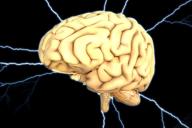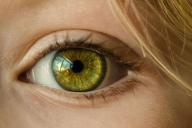depression
Important to Know: How Diet Affects Depression
A new study shows that eating one serving of nuts every day may reduce the risk of depression.
Diana Dashkevich nutrition mental health health Psychology 21 September 2023Mental illnesses damage brains differently: A new study on mental health effects
Mental illnesses can change our personalities a lot, but we also change physically - our brains definitely do. A study involving 1,300 people with different mental illnesses has revealed significant diversity in brain changes.
Kate Yakimchuk research brain Psychology 16 September 2023Reactive depression: Psychologist's insights
Depression can feel quite different for many people, and it also has a few types that differ pretty significantly. One of these types is reactive depression - a mental illness that is directly provoked by traumatic events from a person's life.
Kate Yakimchuk personality help Psychology 15 September 2023Psychologist Explanation: What is Depression
Depressive disorder, also known as depression, is a mental health condition that occurs when a person experiences prolonged sadness or no longer shows interest in activities that they previously enjoyed. In addition to affecting your mood, depression can change your thoughts and behavior and limit your ability to function.
Diana Dashkevich mental health facts Psychology 14 September 2023Hobbies prevent depression: A new study on how hobbies make us happier
People who have interests and hobbies are almost never bored - and that can help them fight depression. Scientists have discovered that hobbies positively impact our mental health way more than you might think.
Kate Yakimchuk research hobby Psychology 13 September 2023Healthy lifestyle prevents depression: A new study on habits and mental health
New research suggests that following a healthy lifestyle can reduce the risk of depression. This means doing things like drinking alcohol moderately, eating a healthy diet, staying physically active, getting good sleep, and having social connections.
Kate Yakimchuk research health lifestyle Psychology 13 September 2023Depression looks differently for everyone: A new study on brain and mental health
Depression can be actually seen in your brain, but it often looks differently in different brains. Major depressive disorder (MDD) is a common mental illness that affects many people, but it's not the same for everyone.
Kate Yakimchuk research brain Psychology 12 September 2023When it's hard to move on: A new study on grief and PTSD
People who've lost their loved ones often need lots of time before they can move on, but sometimes no time is enough. A study published by the American Psychological Association reveals that symptoms of post-traumatic stress disorder (PTSD) can predict the development of complicated grief in individuals who have experienced the loss of a loved one due to trauma.
Kate Yakimchuk research grief trauma Psychology 4 September 2023Why some people lose interest in everything: Adults and anhedonia
Adults can sometimes experience a loss of interest in various aspects of their lives due to a combination of physical, psychological, and environmental factors. This phenomenon is often associated with a condition known as "anhedonia," which is characterized by a reduced ability to experience pleasure or interest in activities that were once enjoyable.
Kate Yakimchuk Psychology 4 September 2023What to do when everything feels pointless: Help yourself and be happier
Feeling like everything is pointless or experiencing a sense of hopelessness is a common and challenging emotional state. It's important to address these feelings constructively.
Kate Yakimchuk goals self-love tips Psychology 2 September 2023Depressed people who don't respond to treatment die earlier: A new concerning study
Depression is a leading global cause of functional disability and is typically treated with antidepressants or psychotherapy. However, a substantial number of patients do not respond to two well-implemented treatment attempts, leading to treatment-resistant depression.
Kate Yakimchuk research treatment Psychology 2 September 2023Depression can be linked to other psychiatric conditions: A study on genetics and mental health
Even people who don't know much about mental health often notice that individuals with depression seem to be also prone to other psychiatric conditions. A new study shows that it might be true - our genes make us more prone to some kinds of mental health issues.
Kate Yakimchuk research genetics Psychology 1 September 2023Good to Know: What is EMDR Therapy and Who is it for
EMDR — Eye Movement Desensitization and Reprocessing. This is a therapy method that helps people get rid of post-traumatic stress disorder.
Diana Dashkevich mental health psychotherapy stress Psychology 31 August 2023How extra body weight makes teens depressed: A study on weight and bullying
Depressive symptoms are more prevalent among teenage girls than their male counterparts, while boys' mental health is more impacted by obesity. However, bullying has a more significant correlation with developing depressive symptoms compared to being overweight, irrespective of gender, as discovered by Uppsala University researchers.
Kate Yakimchuk research teenagers bullying obesity Psychology 30 August 2023Being a poor friend affects your mental health: How finances affect your adolescence
People don't like feeling worse or less successful than their friends, and it's even more important in adolescence. Young individuals who perceive themselves as coming from lower socioeconomic backgrounds than their peers tend to experience lower self-esteem and a higher likelihood of being bullied, according to a study from the University of Cambridge.
Kate Yakimchuk research money friendship Psychology 27 August 2023It's hard to stop the negativity: A study on post-depressed people and their feelings
You can heal your depression, but it's often hard to change your worldview after that, a new study claims. Individuals who have recovered from a major depressive episode seem to dedicate more time to processing negative information and less time to processing positive information, compared to those who haven't experienced such episodes.
Kate Yakimchuk research well-being Psychology 26 August 2023Play the piano to feel better: A study on how music fights depression
While music is a powerful tool for changing emotions on its own, playing the piano can be even more helpful. A study from the University of Bath highlights the positive effects of learning to play a musical instrument on the brain's ability to process sights and sounds, as well as its potential to alleviate feelings of depression.
Kate Yakimchuk research music stress Psychology 25 August 2023Sibling bullying: A silent contributor to mental health challenges
The impact of sibling bullying on the mental health of young individuals has come under scrutiny in a recent study, revealing alarming consequences for their well-being. With a comprehensive analysis of data from over 17,000 participants, the study sheds light on a troubling connection between the frequency of sibling bullying during the formative years of early-to-middle adolescence and the severity of mental health issues that emerge in late adolescence.
Kate Yakimchuk research violence bullying Psychology 23 August 2023Body and mind suffer together: The connection between chronic pain and depression
Chronic pain often coincides with depression and anxiety, creating a complex interplay. In a commentary published in JAMA Network Open, Dr. Kurt Kroenke explores the link between pain, the primary symptom that drives patients to physicians, and depression and anxiety, two of the most prevalent global mental health conditions.
Kate Yakimchuk research pain mind body Psychology 23 August 2023Unlocking peace of mind: Mindfulness courses as allies against depression and anxiety
In the ongoing quest for mental well-being, the power of mindfulness has emerged as a promising ally. A fresh study now validates its potential to combat depression and anxiety symptoms.
Kate Yakimchuk research therapy anxiety Psychology 17 August 2023


















